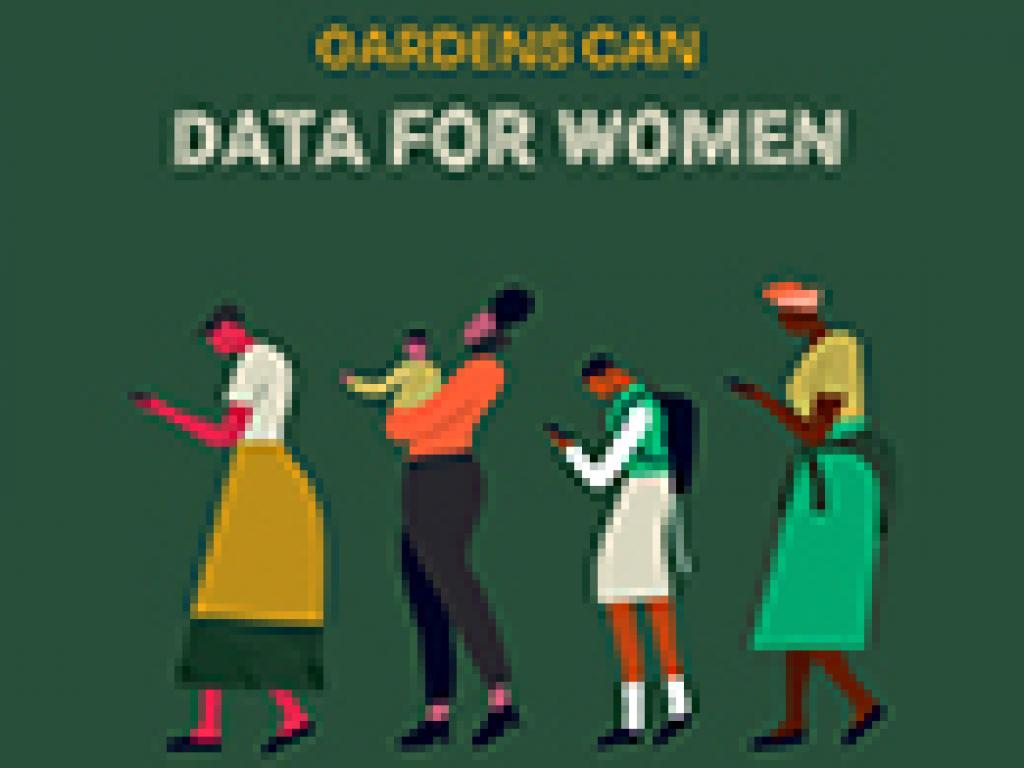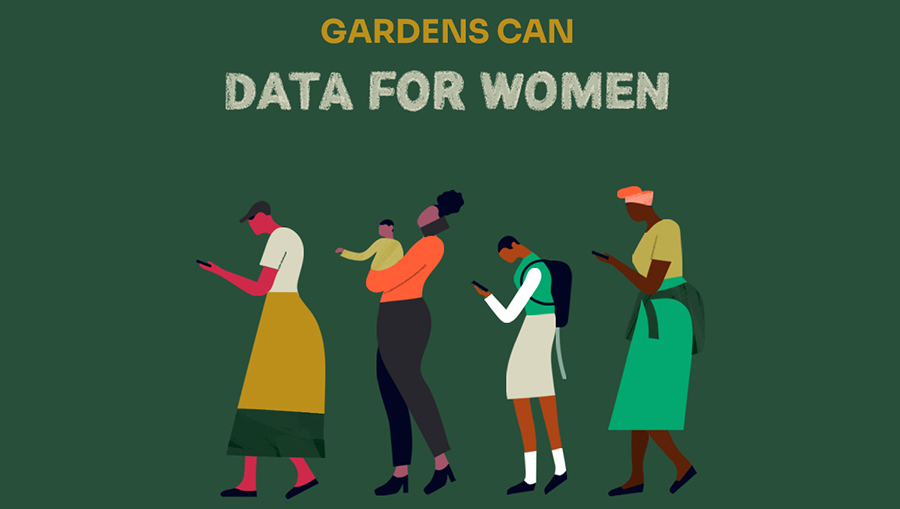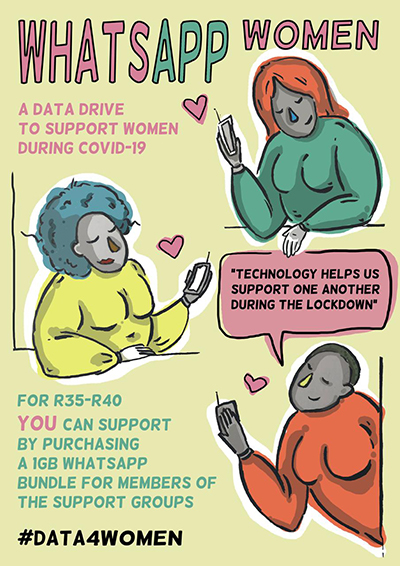Using IT to connect women during lockdown


Designed by Tyla Mason
Unique cutting-edge tech solutions aren’t always what’s needed to solve developmental and societal issues. Often, it’s technology that’s both frugal and simple that can make all the difference.
Post-doctoral fellow with the School of IT, Maria Rosa Lorini brings a background in the social sciences to her take on how technology can support community development, bringing both practical and academic experience to her work in Cape Town’s townships and informal settlements.
When South Africa went into lockdown in March, there was concern that the country’s gender-based violence problem might escalate as frustrations spilled over in living conditions that allowed women no escape from their abusers. Prior to lockdown, support groups were available to women, and Lorini was concerned that without this lifeline women would be completely cut off.

Designed by Stephanie Vining. |
“At first, we thought about a mobile phone app that would let women press a button to get help, but the group leaders said ‘No, not another app,’ because there is not usually enough space on phones, besides the women’s partners might see the app and it would require data that they don’t have.
“There were already collaborative groups in place based on group saving schemes, and these groups provided support on a variety of issues, but during lockdown they couldn’t meet. Through consultation with the community, we learnt that WhatsApp and Facebook were the two platforms mostly used.”
This led to various WhatsApp groups being setup after discussion with community leaders and the project Data for Women was born, providing a way for women to get support or call for help if needed.
“It’s much harder to fundraise for data than for food,” says Lorini, but despite the challenges, ten groups and over 120 women have been connected over the last four months.” WhatsApp bundles are provided so the data is used for a very specific purpose.
Lorini first came to South Africa in 2008 after working with international organisations in Côte d'Ivoire. After working in Cape Town on a variety of community projects for several years she decided to resume for academic studies in 2013. Her first proposal for her doctorate took a very critical perspective on technology.
“Too often technology is seen as a panacea that can solve everyone’s problems, but there is no community perspective and money is pumped into projects that become white elephants.”
However, she decided a more proactive and positive approach was needed and revised her proposal to look at how technology can support community development, believing that solutions need to be found in consultation and collaboration with the communities involved. This has underpinned her belief that frugal and simple technology can often make the biggest difference.
Find out more about the campaign for Data for women here:
https://www.facebook.com/groups/253043885835829
To donate for Data for women:
Gardens CAN
Standard Bank
Acc no. 074 877 534
Please use your Name and "Data Drive" as the reference.
